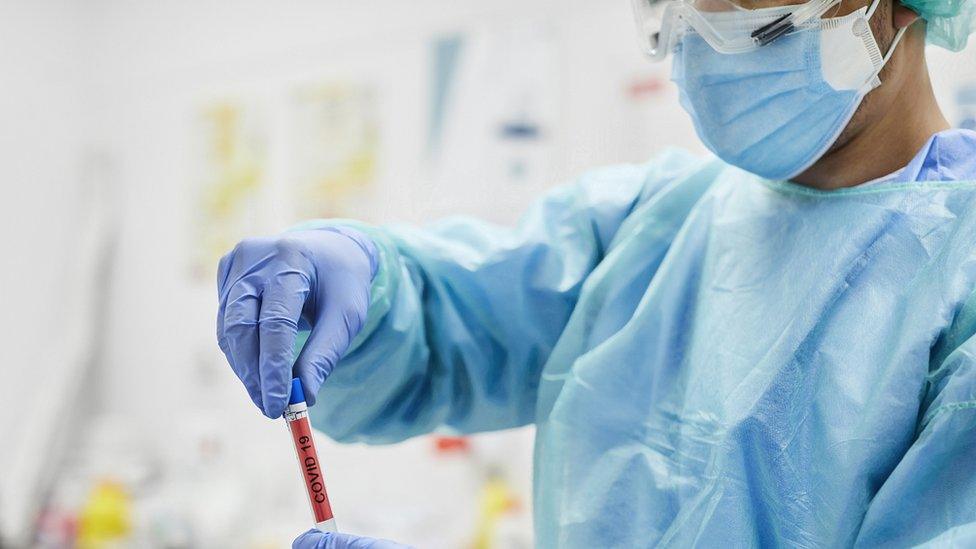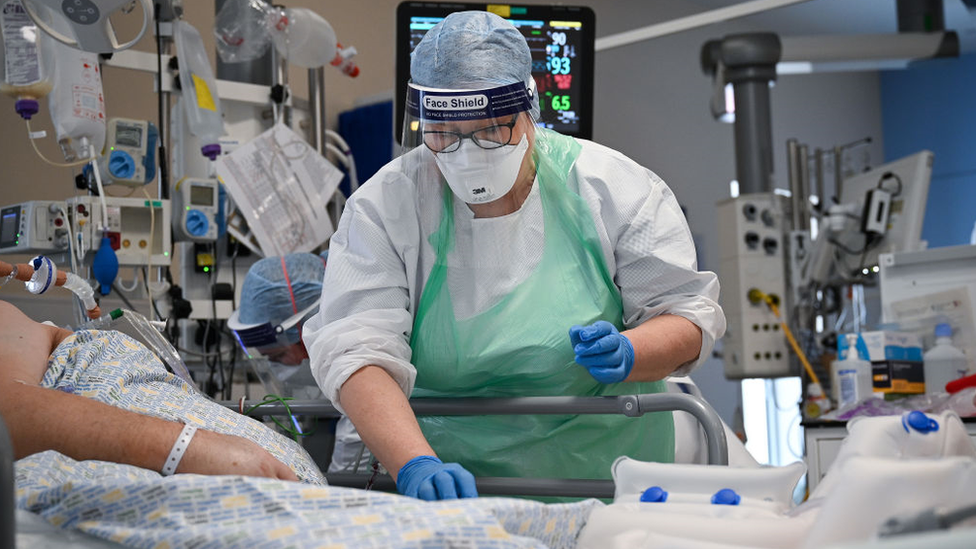Covid in Scotland: NHS Dumfries and Galloway responds to 'very serious challenges'
- Published

Rising patient numbers and an impact on staff have seen the region's Covid response stepped up
A "surge plan" for health and social care in Dumfries and Galloway has been stepped up in a bid to cope with "very serious challenges" facing the system.
The move means some non-Covid work will focus on emergency activity only with staff moved to deal with areas of "high Covid activity".
It comes after the region's medical director issued a "cry for help" over staff numbers isolating due to Covid.
The health and social care partnership is experiencing "very great pressures".
However, it said moving to phase three of its surge plan would ensure it was enacting a "well-planned response".
Dumfries and Galloway Health and Social Care Partnership (DGHSCP) director of strategic planning David Rowland said the system continued to face significant pressure.

"Throughout the pandemic, great effort has been made to ensure we have been able to respond to the direct challenges resulting from the virus, while continuing to preserve essential services," he said.
"The surge plan which was developed in response to these anticipated pressures has proved invaluable, providing us with a system of planned responses."
He said the total number of Covid cases in the region, the number of people needing support from NHS24, hospital patient numbers and the impact on staffing had prompted the stepping up of the surge plan.
The surge plan will also see a focus on ensuring the delivery of "business-critical services".
Mr Rowland appealed to the public to help ease the pressure by doing everything possible to stop the virus spreading.
"We're all in this together, so it's up to all of us to do what we can to limit the impact of Covid and protect our communities and their essential services," he said.
'Massive increase'
What the health board described as a "massive increase" in case numbers in the region has prompted renewed calls for people to get fully vaccinated.
It said nearly 3,000 cases had been recorded in the week ending 2 January compared with 872 the previous week.
Director of public health Valerie White said the Omicron variant had seen numbers "rocket" and they might continue to do so for some time.
"Please, start 2022 from the strongest position, ensuring that you are as fully prepared for your encounter with Covid as you possibly can be," she said.


Related topics
- Published31 December 2021
